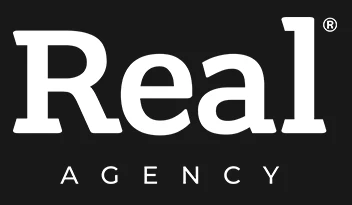10 Ways A Small Business Can Build Better Rankings
It’s fair to say that SEO isn’t easy for any organisation, but it’s particularly challenging if you run a small business with limited time, budget and resources.
Throughout the years, I’ve worked with hundreds of small businesses that found it increasingly difficult to compete with their rivals, especially as costs increase and profits stagnate. There was a lot of finger-pointing at various levels and not much in the way of a tangible strategy to improve things going forward.
With all that said and done, it’s time to help small businesses out and boost those rankings in Google as best we can.
When considering SEO for small businesses, it really all boils down to one key question – what can we do right now that will improve our rankings?
If you’ve explored the world of SEO before, you know that search engine optimisation and good organic rankings take time. This isn’t something that delivers instant results in a structured and quantifiable way like Google AdWords, for example.
That said, selecting the right things to focus on today for better organic rankings tomorrow is vital and can start to push your site in a positive direction.
SEO for small businesses boils down to one key question – what can be done right now that will have a positive impact on rankings?
Tweet this now
With that in mind, here’s our SEO checklist of 10 things any small business can do to improve their rankings on the search engine:
Understand What Services Your Customers Want
Before you take any more steps towards improving your rankings, you need to understand what it is that customers value from your business.
Ask yourself some questions to help you do this:
- How and when do customers determine that they need your service or product?
- Is it usually when browsing at work on a desktop computer, or maybe relaxing at home on a mobile device?
- Is it for personal gains, like finding a place to eat or somewhere to buy a suit/dress?
- Or is it due to a problem or issue that needs professional help?
Once you understand the answers to these questions, you can piece together your most common user journey and begin to get an idea of what language your customers might use when searching online. It’s this information that can drive things like keyword research and content creation.
Importance – Crucial
Fix Technical SEO Issues
One of the most common themes we find with small eCommerce businesses specifically is that things look great from the outside looking in – the images are great, the font is easy to read and the colours work really well.
It’s only when you take a look ‘behind the scenes’ and unearth a variety of technical SEO problems that could be limiting ranking performance.
Common issues we find here are site speed, duplicate content, poorly optimised pages and broken links. A site that looks good but doesn’t function well is doomed to fail. Before you dedicate any time to improving your content or page layouts, you need a solid website structure that is easy for search engine crawlers to index.
Take a look at our step-by-step guide covering which elements you need to optimise for maximum SEO benefit.
Importance – Crucial
Page Optimisation
This is another key component of a site that ranks well. As a small business, you need to create high-quality content that is correctly structured and targets the appropriate keywords to muscle in with the big boys. Tread carefully here, however, as adding too many keywords can have the opposite effect.
Failure to optimise your on-page content will see you miss out important ranking signals that Google looks for including optimised titles, meta descriptions and body content.
This is where the information you’ve gained from the first step in this checklist comes in too. Think about the search terms and language a potential customer might use, and try to help them within your content.
Importance – Crucial
Google My Business Optimisation
If you’re not already using it, taking advantage of the unique benefits Google My Business can bring will make a big difference in rankings, especially in local location-specific searches.
The first move you need to make here is to head over to Google My Business and claim your business – yes, you have to confirm you own your business! Don’t panic though, this is very straightforward.
Do what you can here in terms of filling out as many of the fields as you can. Also, don’t be afraid to add photos or videos of your business as these will be visible via Google and enhance the look of your listing.
One of the most important features smaller businesses can take advantage of in local search results is the questions and answers section. Once your business is listed, users can interact with the listing directly and leave you questions specifically for you to answer. If you can stay on top of these and give informative, helpful answers, you’ll be able to build your reputation and increase engagement directly with your target market.
Importance – Moderate
Work On Local Business Listings
Alongside Google My Business, you can also leverage data aggregators to help get your brand name out there.
A great approach to this is to get in touch with local directories and sign up for a service that distributes your business information on your behalf. Just make sure your business NAP (name, address and phone number) is accurate and consistent across all business listings and citations.
Importance – Low
Check Out The Competition
With the online world as huge as it is, the competitors you have within your local area are likely to be different to the ones you have online. If you keep seeing the same name crop up every time you search for your target keywords, that rival could be a great site to analyse.
If you keep seeing the same name crop up every time you search for your target keywords, that site could be a great one to analyse.
Tweet this now
Use some online tools (like the ones documented in this fantastic guide from Search Engine Journal) to analyse what your competitors’ site is ranking for, how many indexed pages they have, their site structure and the state of their backlink profile.
See if you can take this information and identify any areas of weakness – is their site particularly slow? Are there keywords they might have missed? What can you do to jump ahead of them?
Importance – Low
Work On Backlinks
It’s fair to say that most small business owners don’t really give links that much consideration, especially in terms of rankings. It’s easy to forget that getting good quality links to your site can boost ranking performance, something that increases the likelihood of more organic traffic and therefore generates more sales.
For some ideas on how to grow local backlinks, take a look at this great article from Moz.
Importance – Low
Try To Secure More Reviews
Everyone is chasing reviews right now, from huge multinational companies like Amazon to ‘John Doe’ selling t-shirts through his new Shopify site. There’s a good reason for this too – not only review a local search ranking factor, they also provide a great way for you to find feedback on your products or services.
Google is focusing on user experience metrics more than ever, so adding a reviews page onto your site might not be a bad idea. Failing that, try and get reviews via your company listing on Google as this is often the first place new customers will check before using your services.
Here’s our own guide on the best ways to generate customer reviews.
Importance – Moderate
Add Schema Data
This one is dead simple and is the perfect way to give search engines like Google more information about your business.
Schema markup data can highlight key details like your business name, address, phone number, rating/reviews and opening hours. Not only that, adding this kind of data can see your standard listings improve visually with search engine results pages – star ratings, prices, stock levels and more can all be pulled through from product pages for example.
For more help with schema data for small businesses, take a look at this handy guide.
Importance – Low
Mix Paid With Organic
We decided to add this last checklist tip as a way to reward you for making it this far through the post – thank you!
SEO takes time. That’s an inescapable fact. If you need to see results sooner, we’d suggest combining your SEO efforts with a paid search campaign courtesy of Google AdWords.
As your on-page optimisation and content tweaks slowly take effect, setting aside some budget for a paid search campaign can keep business flowing in the meantime. You may decide to continue your paid search efforts even after your organic rankings have improved; just bear in mind the costs associated with ramping up your AdWords activity.
Importance – You Decide!
Summary
Although this checklist only scratches the surface of what a comprehensive SEO campaign would usually cover, small businesses can dedicate what little time and resources they have to each of these steps in turn. Even if you look at this list and feel a little uneasy, it’s important to just try and do something to get the ball rolling.
Set yourself some simple, achievable goals and start working through this list!


